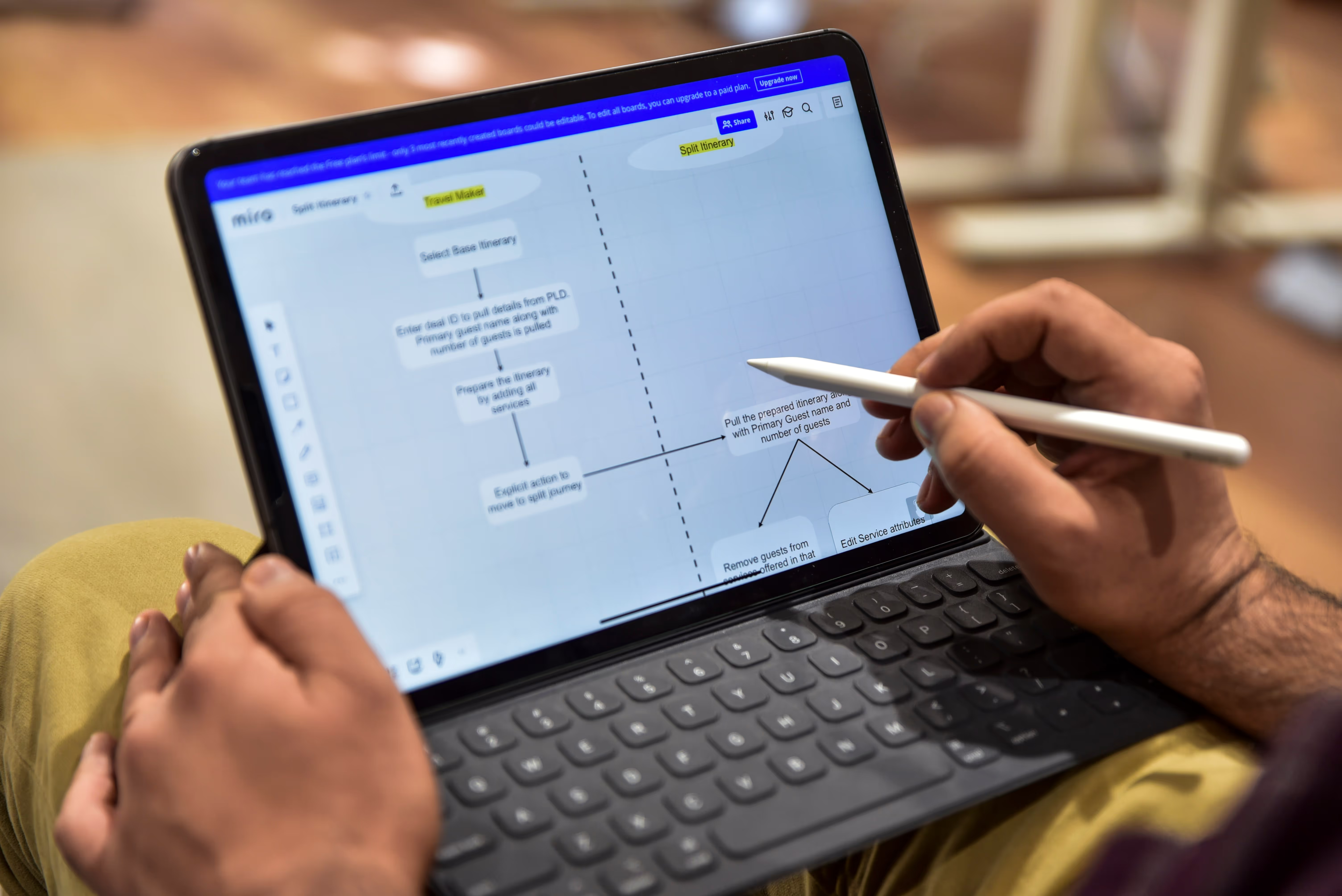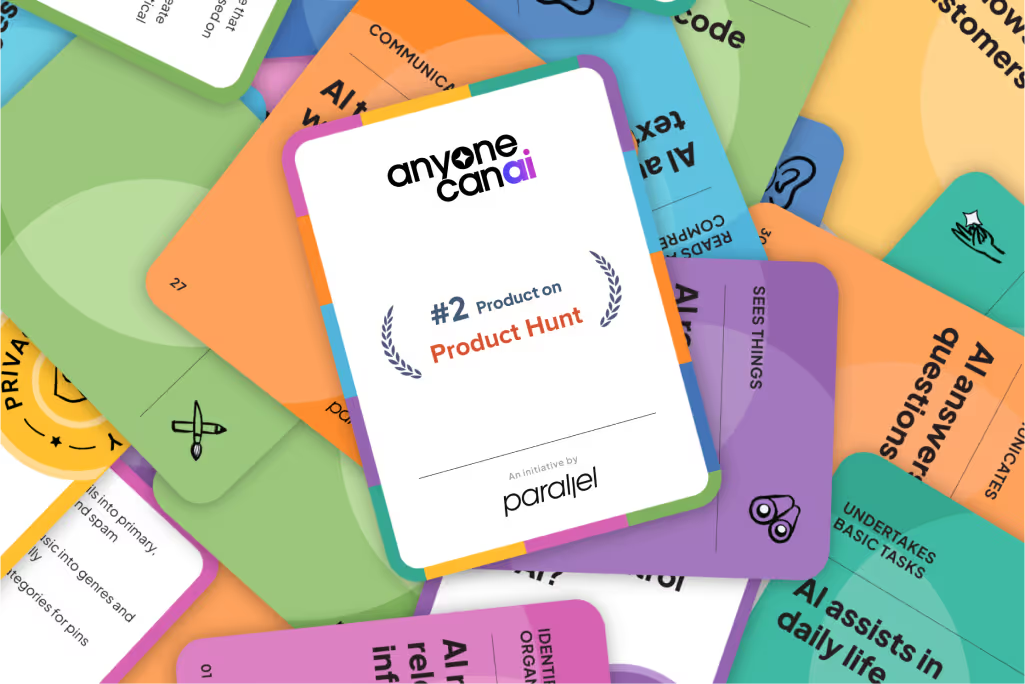10 Best Offshore Product Development Companies (2026)
Discover offshore product development companies providing cost‑effective engineering, development, and innovation solutions for global businesses.

Every founder and product manager wrestles with the same trade‑offs: keep burn low, ship quickly and find talent that isn’t confined to a single city. Hiring at home can drain capital fast, and great engineers and designers live all over the world.
A well‑chosen offshore product development company can deliver cost savings, accelerate timelines and bring in global talent without adding overhead. In my work leading ParallelHQ, a product and machine‑learning design studio, I’ve seen how tapping the right partners overseas helps fledgling teams turn ideas into shipping products.
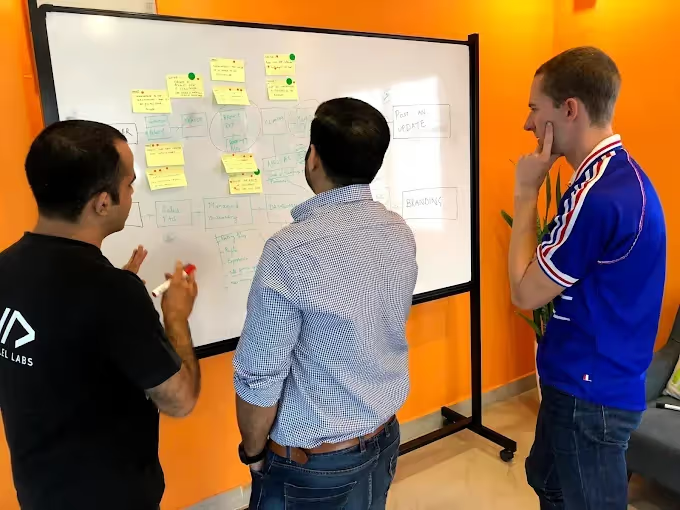
This article explains why offshoring makes sense for early‑stage startups, how to pick the right partner and profiles some of the best firms in the market.
Why does offshore development make sense for startups?
Offshore product development means hiring a team in another country to design, build and support your product. Done well, it’s more than outsourcing tasks; it’s about building a relationship with a remote team that works side‑by‑side with your in‑house group. As a founder, these are the practical benefits I’ve seen over and over:
- Lower costs: Labor rates vary widely around the world. Industry research says the global offshore development market will be worth about $151.9 billion in 2025, growing to roughly $389.7 billion by 2033 at a 12.5% annual rate. Cost reduction is still the main driver; Deloitte’s survey found that 70% of companies cite lower costs as the primary reason they choose offshoring. When you pay $15–35 per hour for engineers in India instead of $100–150 in the U.S., your runway goes further. That gap isn’t just theoretical. A seed‑stage AI startup we worked with used a distributed team in Bangalore and Kiev and reduced its monthly burn by about 40%. The savings didn’t come from cutting corners—rather, the founders were able to hire two experienced engineers abroad for the price of one junior developer at home. With a longer runway, they could experiment with different user acquisition channels and iterate on the product without the constant pressure of running out of cash. Lower salaries also let them re‑invest in tooling, which improved developer productivity and morale.
- Access to skills: Offshoring opens a global talent pool. India alone has over 5.2 million developers. Eastern Europe and Latin America add millions more. Many of these developers are fluent in modern stacks and trained at world‑class universities. A good partner can plug skill gaps quickly without months of recruiting. In practice, this means your local network doesn't limit you. One founder we advised was building a fintech product with a complex data‑visualization layer. He struggled to find engineers comfortable with React and D3 in his city. Working with an offshore product development company in Poland, he hired a team with both front‑end and analytics experience. They built a custom charting library and integrated it with the back‑end in weeks. Such cross‑disciplinary expertise isn’t always available down the street but can be found abroad if you know where to look.
- Agility and scale: Offshore teams can grow or shrink based on your priorities. Need a front‑end specialist for three months? Add one to your remote team. Closing a funding round? Scale back without layoffs. A SupportNinja report shows that 86% of business leaders now prioritise service quality over cost when choosing an outsourcing partner; they want partners who can respond to changing needs. Agility isn’t only about headcount. When your day ends, your teammates in another time zone can pick up the baton and keep the project moving. This “follow‑the‑sun” model can cut calendar time without burning anyone out. Atlassian, for example, shifted to a distributed workforce in 2020 and emphasised transparency and trust to keep work flowing. Early‑stage startups can borrow that playbook on a smaller scale. By splitting tasks between San Francisco and Mumbai, our clients have shipped weekly releases without working through the night. The key is to adopt shared rituals—daily standups, clear tickets and detailed hand‑offs—so that work never falls into a black hole.
- Round‑the‑clock progress: When your local team sleeps, a team nine or twelve hours ahead can keep moving. Buffer’s survey found that 59% of remote workers operate across two to five time zones. This time‑zone diversity becomes an advantage when managed well.
- Focus on your core: For founders, the biggest hidden cost isn’t payroll—it’s time. A seasoned remote team handles hiring, compliance and infrastructure so you can focus on product strategy, user research and growth.
- Better design and user experience: Experienced offshore partners aren’t just coders; many now employ designers and researchers who follow human‑centred principles. The design firm IDEO says design thinking integrates people’s needs, technological possibilities and business requirements. Working with a partner that values user research and iterative prototyping can improve the quality of your product early on. Research by Nielsen Norman Group shows that using a divergent‑and‑converge process speeds up analysis and yields better insights, while another study found that fluid interfaces—where the product responds smoothly to user inputs—boost satisfaction by up to 40%. When your offshore designers are invested in these practices, you avoid shipping features that frustrate customers.
- Motivated remote talent: Remote work is no longer a perk—it’s an expectation. In Buffer’s 2023 survey, 98% of respondents said they want to work remotely at least some of the time. Companies like Atlassian have shown that you can maintain a strong sense of team without a shared office. Many developers choose offshore roles because they value autonomy, flexible schedules and the opportunity to work on interesting products. A motivated remote team often brings a positive attitude and fresh ideas, which can be contagious for your in‑house staff.
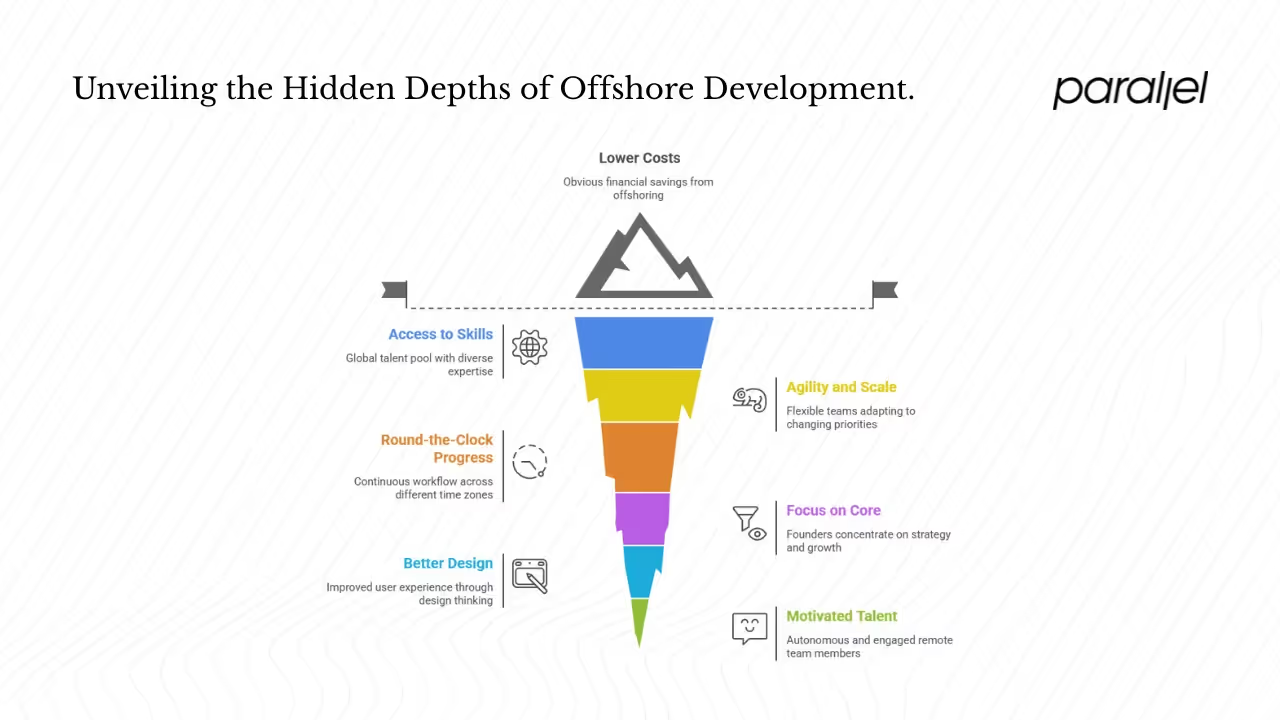
Apart from cost and speed, offshoring invites new ways of working. The Nielsen Norman Group’s diverge‑and‑converge method shows that mixing independent work with group discussion leads to stronger outcomes. Remote teams benefit from this approach because members can work alone to research or design and then reconvene to align perspectives, reducing groupthink and promoting better decisions. Good partners build these rituals into their process.
Offshoring is now mainstream. Fifty‑four percent of U.S. companies that outsource development pick India. Nearly all Fortune 2000 businesses rely on IT outsourcing. The takeaway: you’re no longer betting on an unproven model. You’re tapping into a well‑established practice that even the largest firms trust.
Which are the 10 best offshore product development companies in 2025?
Before naming firms, keep in mind that there is no one‑size‑fits‑all solution. You should match your product’s needs and budget with the right offshore product development company. Rates change over time, and this list reflects typical patterns as of mid‑2025.
1) Parallel
ParallelHQ is the studio I run. We focus on bringing product strategy to early‑stage companies. Our work spans finance, health and consumer apps. We don’t chase volume; instead, we build a small number of products end to end.

Clients often come to us when they need a thought partner, not just coders. Because we sit at the intersection of design and development, we’re able to challenge assumptions and cut unnecessary features early.
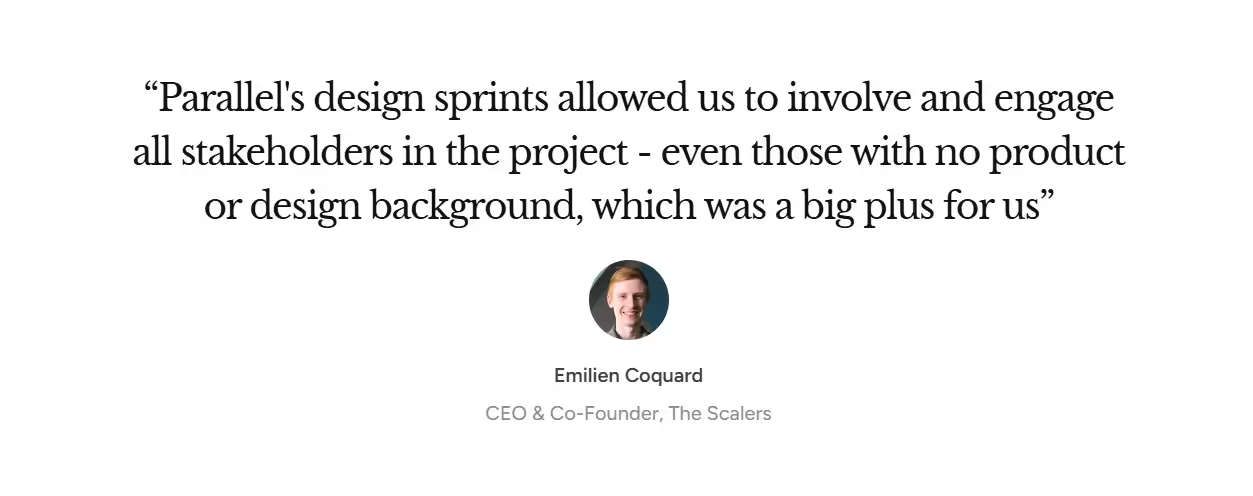
2) Toptal
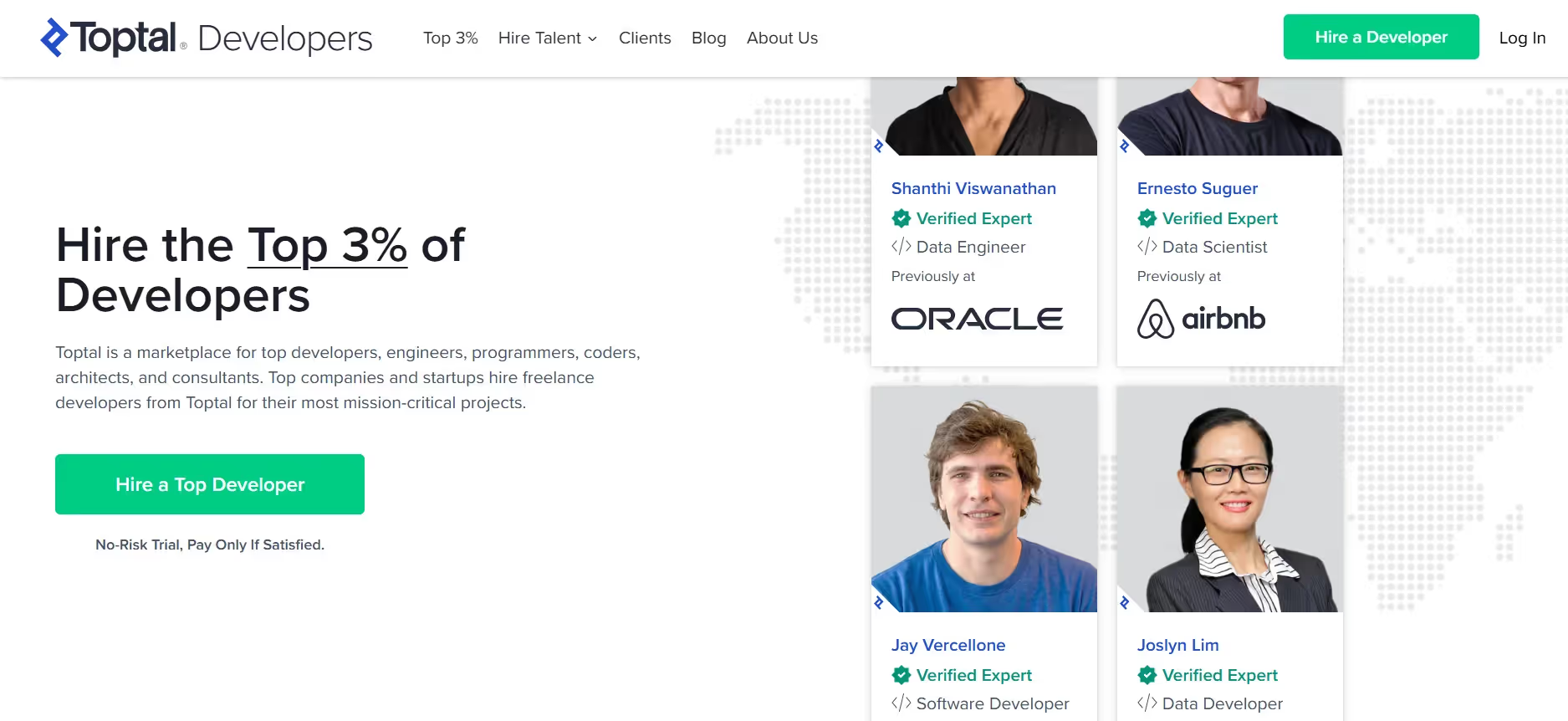
Toptal has built a reputation for supplying rigorously screened freelance engineers and designers—only about 3% of applicants pass their vetting. It’s ideal when you need one or two specialists quickly but don’t want to search on your own. For early‑stage founders, Toptal’s biggest advantage is speed: you can fill a skill gap in days rather than months. While you’ll pay a higher hourly rate than hiring directly, the overall cost is often lower than mis‑hiring the wrong person. Toptal can act as your offshore product development company if you assemble a small team through the platform.
3) Uptech
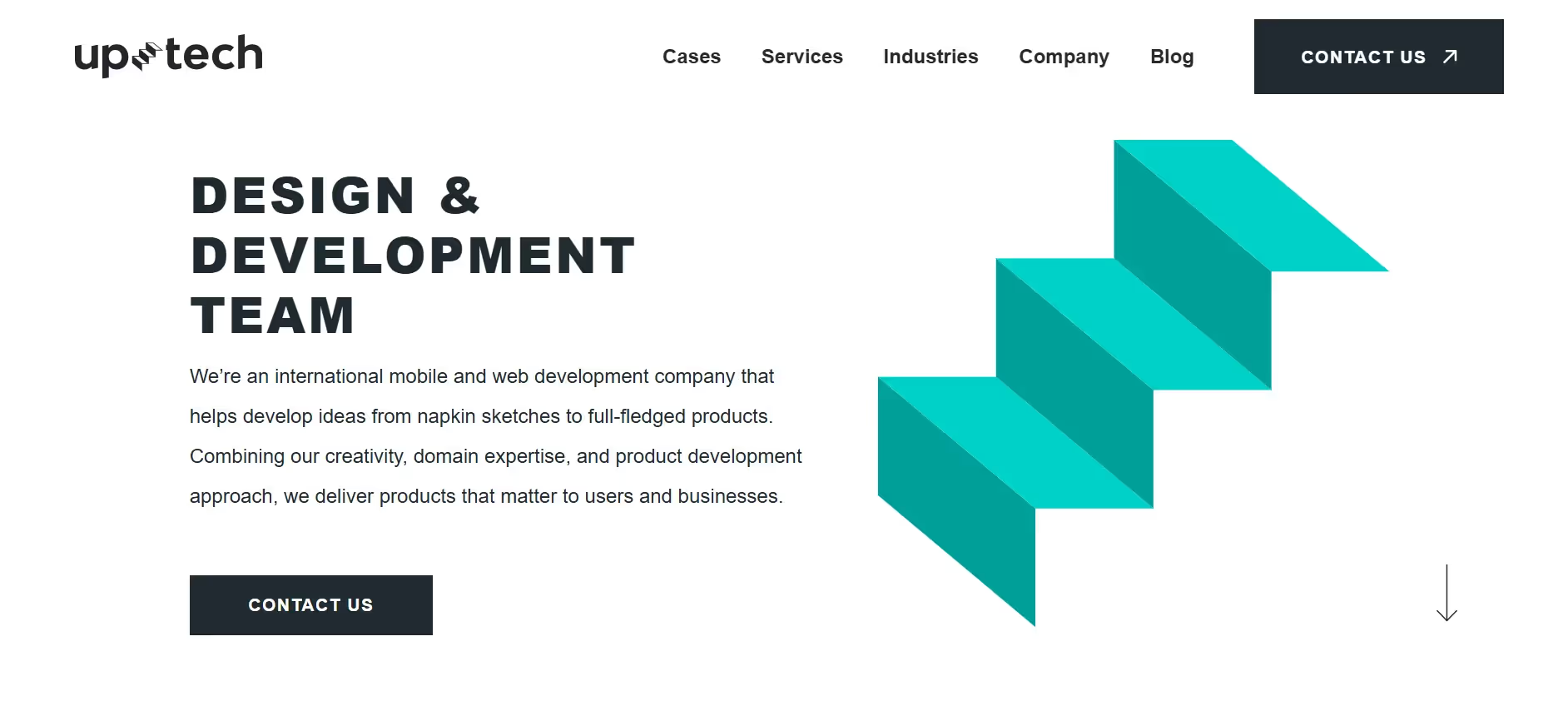
Uptech is a Ukraine‑based firm that positions itself as startup‑friendly. They handle everything from discovery to design and engineering. Uptech says it has built more than 150 products and operates at rates between $25 and $49 per hour. Because the team focuses on user‑centered design, it’s a good fit for founders who need help shaping the entire product, not just writing code. If you’re on a tight budget but still want a high‑quality experience, Uptech might be worth a call. As an offshore product development company, Uptech brings startup‑friendly processes to the table.
4) ScienceSoft
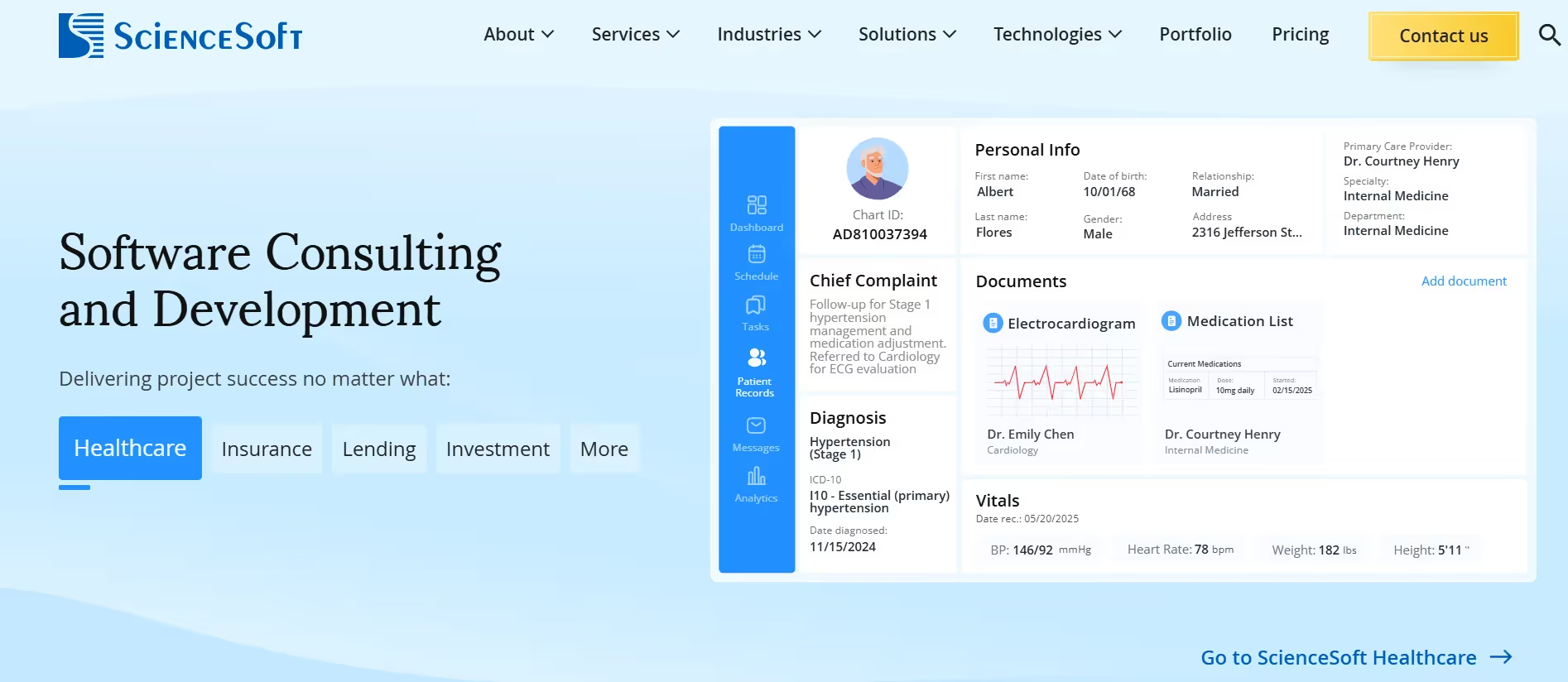
ScienceSoft operates out of Eastern Europe with offices in the U.S. and the Middle East. They emphasise strong project management and hire selectively—only about 2% of applicants join the team. The company holds ISO 9001 and ISO 27001 certifications, meaning they take quality and security seriously. Founders often pick ScienceSoft when they need enterprise‑grade engineering at roughly half the cost of U.S. firms. They can build SaaS platforms, mobile apps or integrate off‑the‑shelf systems. As an offshore product development company, ScienceSoft combines European quality with cost efficiency and a focus on rigorous processes.
5) EPAM Systems
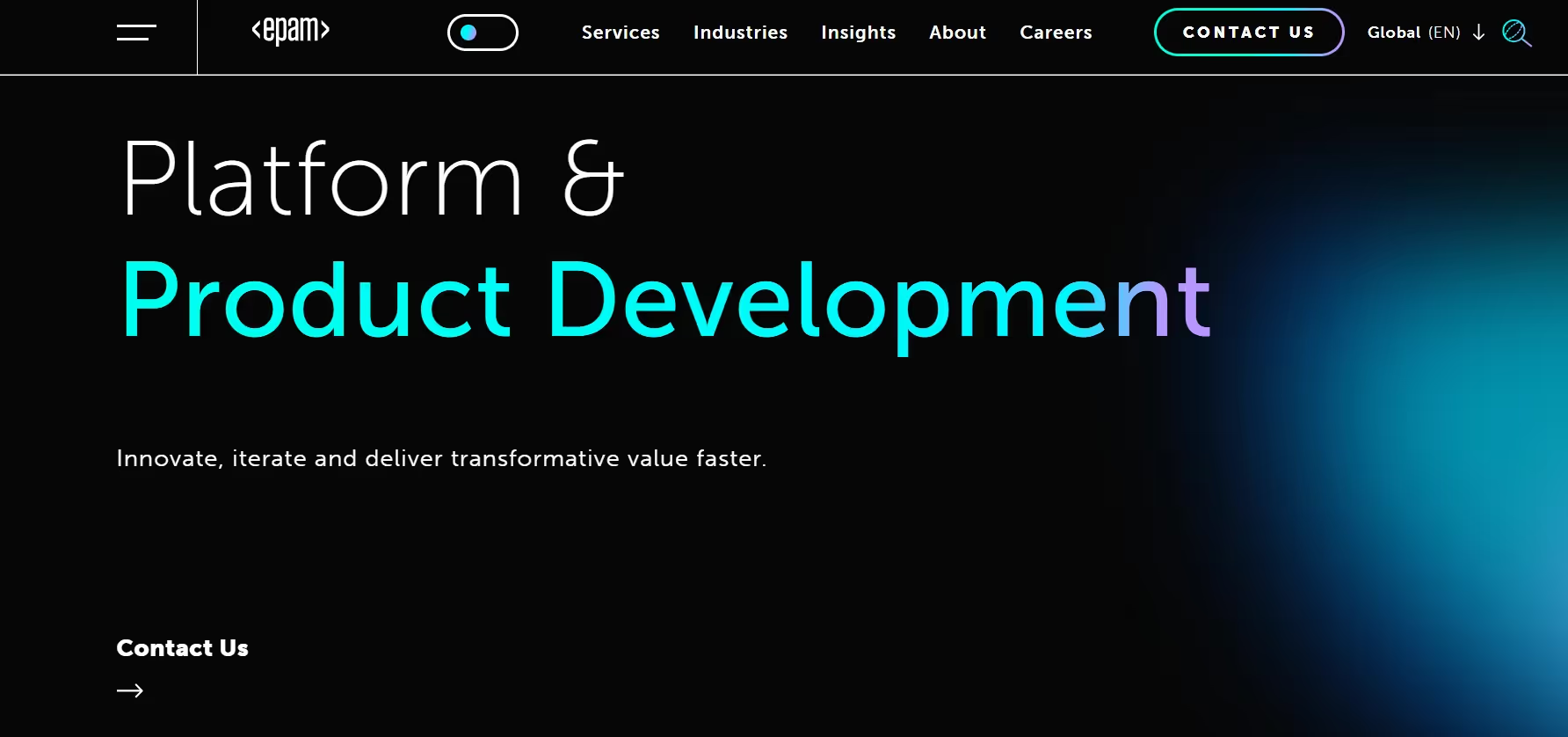
EPAM is a global services giant with tens of thousands of engineers. They serve Fortune 500 clients as well as startups. If you need to build a complex platform that touches many domains—cloud infrastructure, data, mobile and web—EPAM has the range and experience. Because of their size, they can assemble dedicated teams quickly and bring domain expertise in industries like banking or healthcare. Costs will be higher than smaller firms, but you get depth and reliability.
6) Globant

Globant blends product engineering with strategy and brand services. Their teams help clients define digital strategies, design user experiences and build the software. They’ve worked with media companies, retailers and airlines. For early‑stage founders, Globant’s appeal is the combination of product vision with execution. However, because they work with large companies, minimum project sizes can be high.
7) Andela

Andela started as a developer training program in Africa and has become a network connecting tech talent across the continent with companies worldwide. They rigorously vet developers and support ongoing learning. Andela offers flexibility: you can hire one engineer or build a small remote team, and you’ll get time‑zone overlap with European and U.S. customers. If you care about social impact and want to tap into under‑represented talent pools, Andela is a strong choice. Andela emphasises continuous learning and pairs vetted African developers with projects around the world.
8) Infopulse

Infopulse is a long‑standing European firm known for long‑term relationships with clients. They provide application development, infrastructure management and consulting. What sets them apart is stability: many of their staff have been with the company for years. They’re a fit for founders who value reliability and need a partner to maintain products after launch Infopulse also brings expertise in cloud migration and security.
9) ValueCoders

ValueCoders is based in India and offers a wide range of services from web and mobile development to blockchain and machine‑learning projects. Their pricing is competitive, and they’re accustomed to working with small to midsize companies. If you want to work with an offshore product development company that has a broad technical portfolio and affordable rates, ValueCoders is worth considering. Make sure to vet individual teams for the skills you need because quality can vary in larger firms Because ValueCoders has multiple delivery centres, ask to meet the engineers who will work on your project and ensure they understand your domain and users.
10) BairesDev
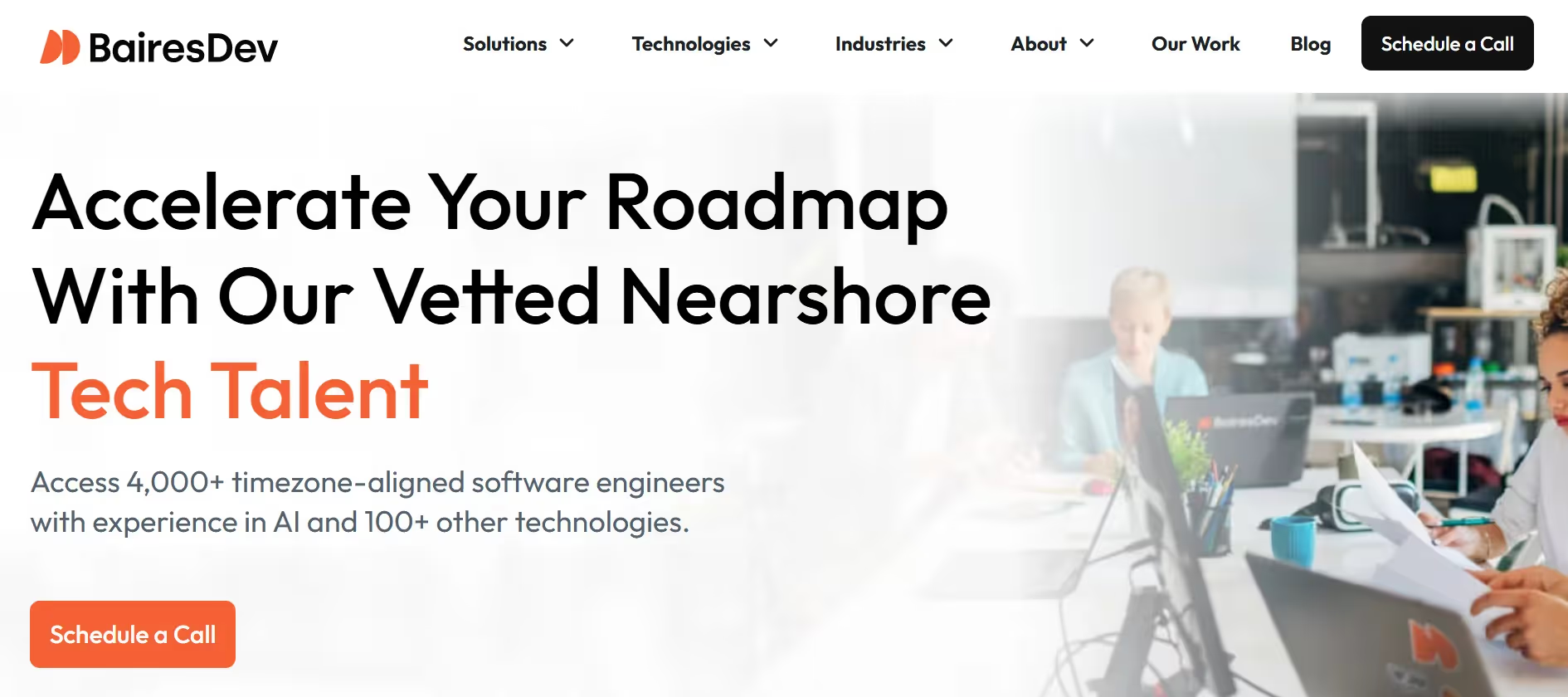
BairesDev taps tech talent across Latin America and matches it with companies in the U.S. and Europe. Their geographic proximity provides overlapping hours, which reduces communication gaps. BairesDev builds both mobile and web products and often supplements in‑house teams. For founders in the U.S. looking for time‑zone alignment and lower rates than domestic firms, BairesDev offers a practical option They pride themselves on bilingual teams and an agile approach that reduces handoff friction for U.S. clients.
Conclusion
Offshore development has moved from a tactical cost‑cutting tool to a strategic lever for young companies. The market’s rapid expansion and the trend toward service quality show that businesses now seek partners who can deliver product thinking, design insight and technical excellence—not just low‑cost code. At ParallelHQ we’ve watched early‑stage teams extend their runway, build better user experiences and hire globally by working with the right partners.
A good offshore product development company can act as an extension of your team, share responsibility for outcomes and free you to focus on growth. Don’t fixate on rates alone—match on communication style, technical expertise and your working environment. Take small steps: run a pilot project, interview references and make sure you trust the people you’ll work with every day. The reward is a product that ships faster and a team that feels bigger than your payroll suggests. Working with partners abroad isn’t just about handing off tasks; it’s about building relationships.
FAQ
1) What is offshore product development?
It means hiring a team in another country to design, develop and support your product. Instead of building everything in‑house, you collaborate with specialists abroad who work closely with your local team. This approach opens access to talent, reduces costs and allows you to scale quickly.
2) Which three countries are prime candidates for offshore IT outsourcing?
India stands out due to its enormous talent pool (over 5.2 million developers) and established outsourcing ecosystem. Eastern European countries like Ukraine and Poland offer strong engineering skills and working practices similar to Western Europe. Latin American hubs such as Argentina and Brazil provide time‑zone alignment for U.S. companies and a growing base of skilled developers. Each region has different strengths—evaluate them based on your product needs, preferred collaboration style and budget.
3) How big is the offshore development market?
Market.us estimates the offshore software development market will reach about $151.9 billion in 2025 and grow to around $389.7 billion by 2033, with an annual growth rate of 12.5%. The industry’s expansion reflects how more companies view offshoring as strategic, not just transactional. Nearly 92% of Fortune 2000 companies now use IT outsourcing, and the mix of services is expanding to include design, research, and ongoing product support.


.avif)


